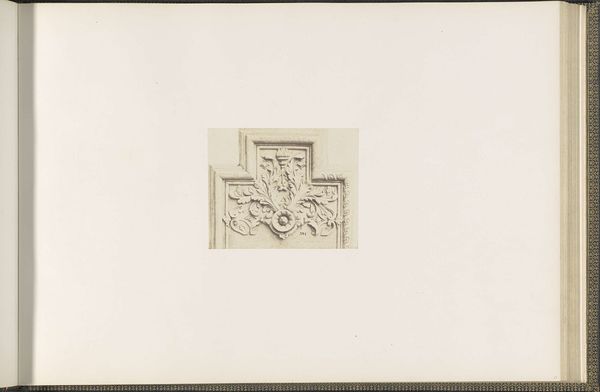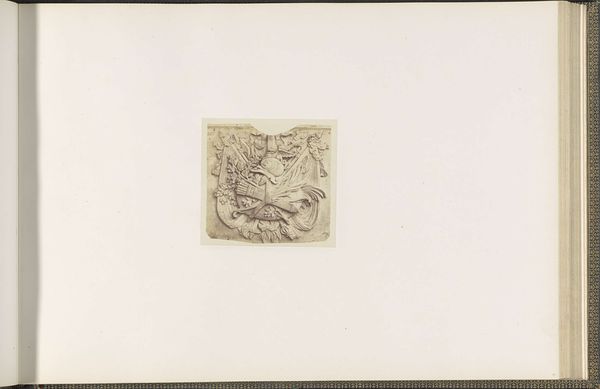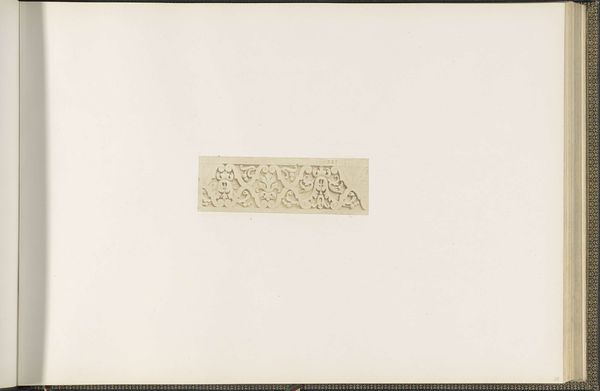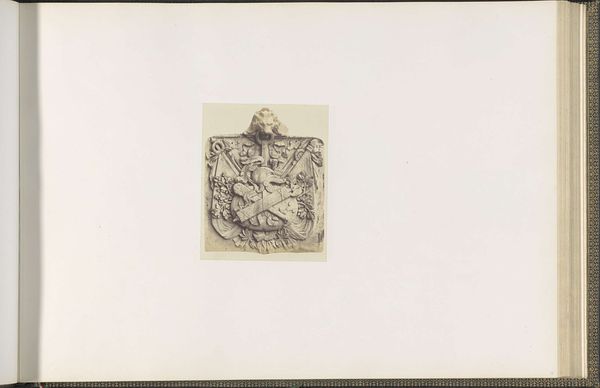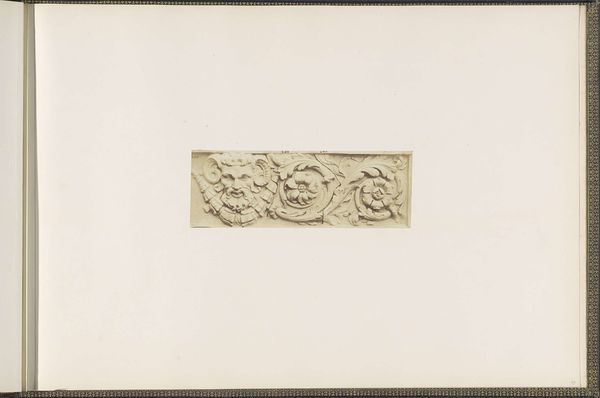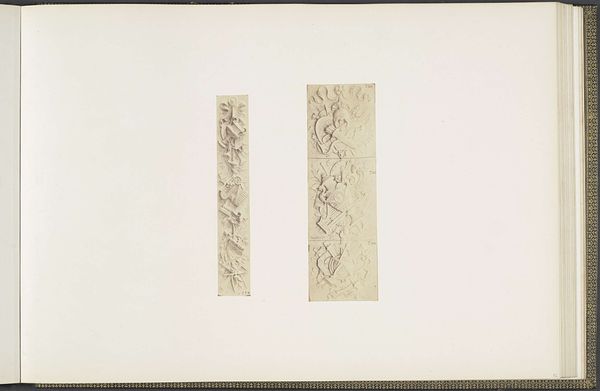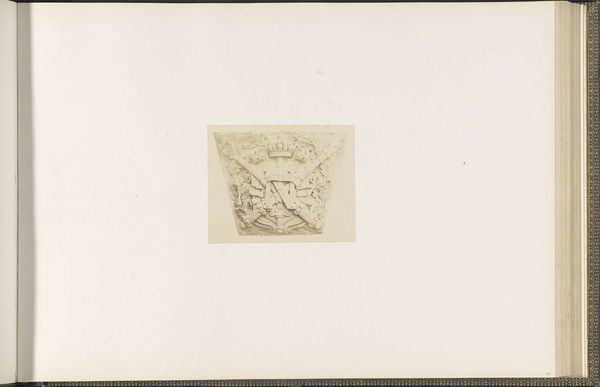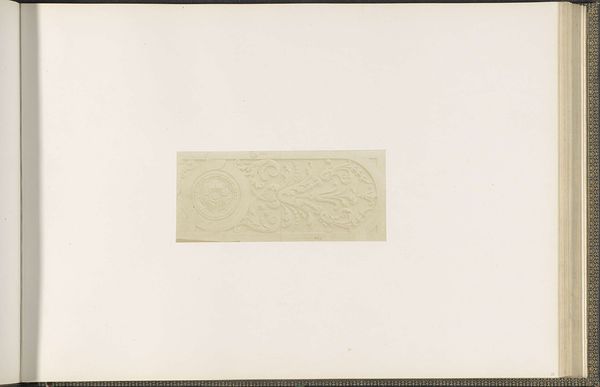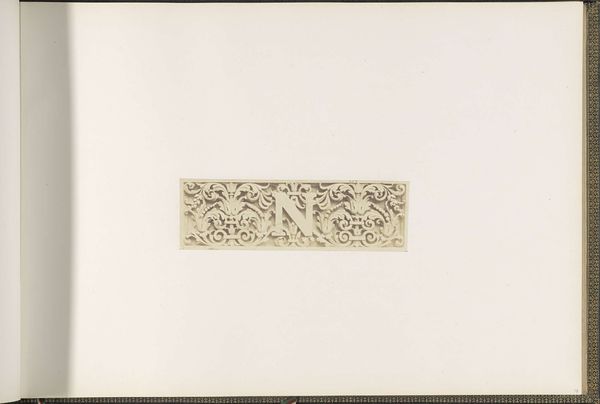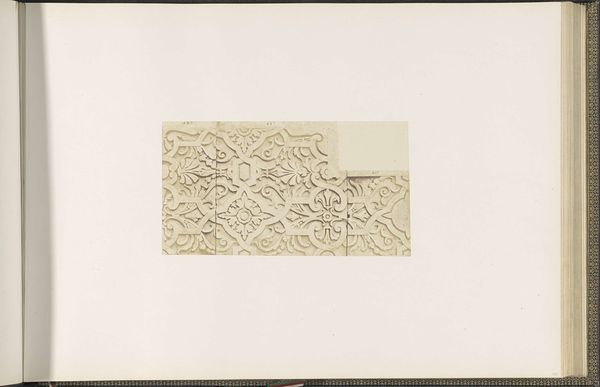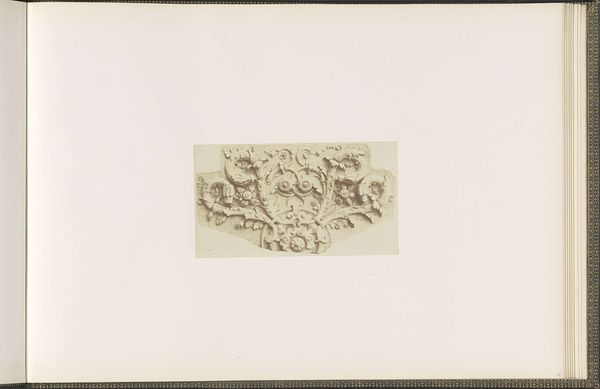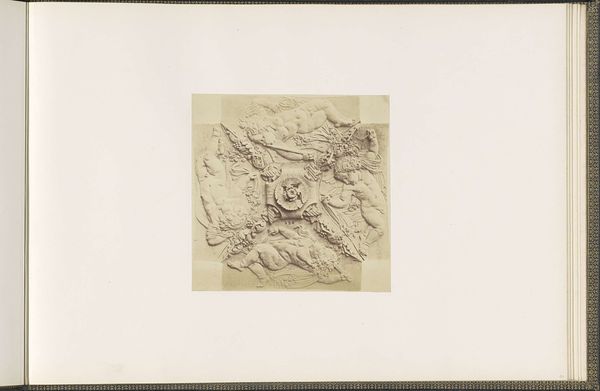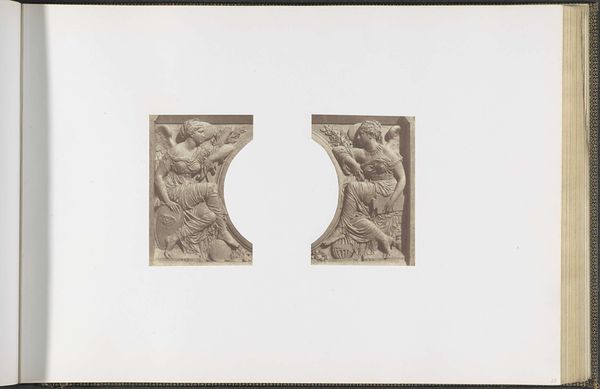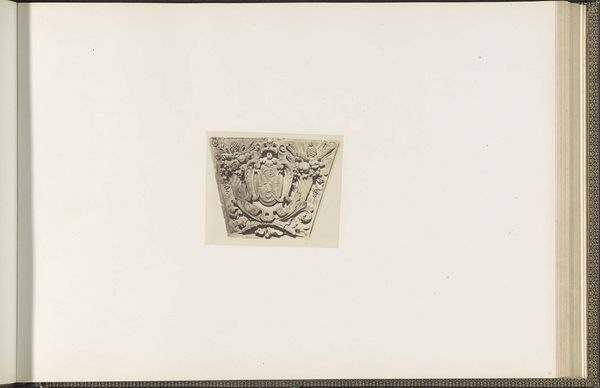
Gipsmodel voor een gewelfversiering van het Palais du Louvre door Emile Knecht c. 1855 - 1857
0:00
0:00
edouardbaldus
Rijksmuseum
drawing, print, relief, paper
#
drawing
#
neoclacissism
# print
#
relief
#
paper
#
academic-art
Dimensions: height 376 mm, width 523 mm
Copyright: Rijks Museum: Open Domain
Edouard Baldus created this artwork, "Gipsmodel voor een gewelfversiering van het Palais du Louvre door Emile Knecht," likely in the mid-19th century. The photograph captures a plaster model intended for the Louvre, presenting a study in relief and architectural ornamentation. The image is dominated by a central, ornate design featuring a symmetrical arrangement of foliage, possibly vines, and a circular motif at its center. The texture is particularly notable, as Baldus has captured the three-dimensional quality of the plaster, giving depth to the overall composition. Each element is meticulously detailed, from the curves of the leaves to the fine lines of the central medallion. Consider how Baldus frames the model against a stark background, isolating it as an object of scrutiny. This approach encourages us to consider the visual language of architectural ornamentation: the symbolic use of natural forms and the construction of symbolic meaning through symmetrical arrangements and intricate detailing. What ideology is embedded here? The photograph invites reflection on the relationship between art, architecture, and representation itself.
Comments
No comments
Be the first to comment and join the conversation on the ultimate creative platform.
